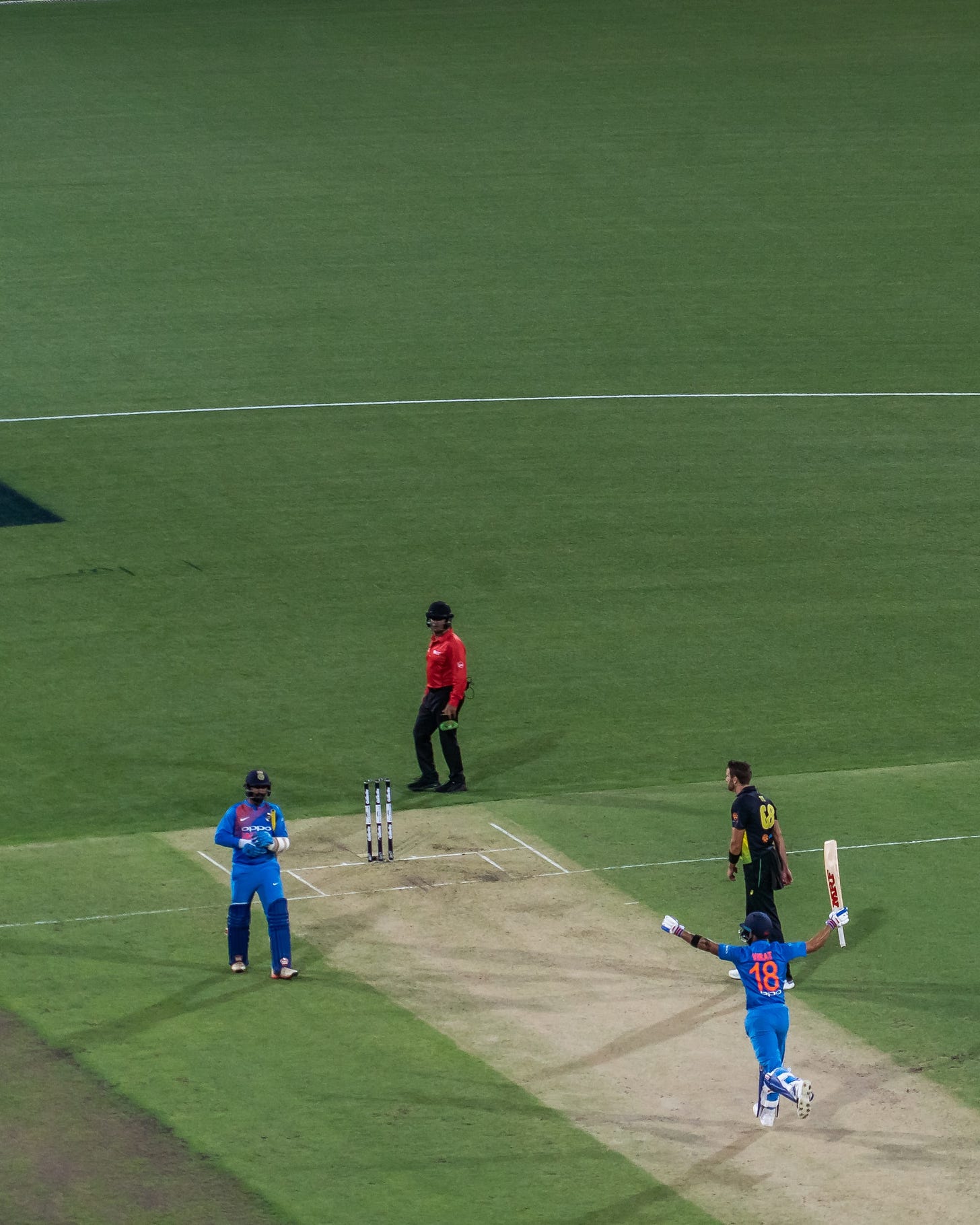Hey there!
Hope you are having a good Sunday.
I miss training with my Saturday group. While I enjoy training by myself, there’s just something to having a bunch of like-minded folks around to inspire and grunt together with. But in the scheme of things, minuscule stuff.
On to the 3 things for today.
The Obsessive. Last week, we met the Dabbler. Continuing my take on George Leonard’s Mastery and the types of personalities, and how they fit the various types of students I see (including myself). And what we can learn from it by learning what type we are currently.
3 quotes, including Derek Sivers on why you should think about being the bronze medalist rather than the silver medalist.
on hard and fast rules. While they work for the short-term, they inevitably fail. This is also why diets fail in the long-term but that’s for another time. So, do we not have any rules? Is anarchy the solution to our fitness goals?
As always, I’d love it if you can share ONE post with ONE person.
The Obsessive
Let's read the relevant excerpt from Mastery.
The Obsessive is a bottom-line type of person, not one to settle for second best. He or she knows results are what count, and it doesn't matter how you get them, just so you get them fast. In fact, he wants to get the stroke just right during the very first lesson. He stays after class talking to the instructor. He asks what books and tapes [AA: Reminder that this book came in the early '90s] he can buy to help him make progress faster. (He leans toward the listener when he talks. His energy is un front when he walks.)The Obsessive starts out by making robust progress. His first spurt is just what he expected. But when he inevitably regresses and finds himself on a plateau, he simply wont accept it. He redoubles his effort. He pushes himself mercilessly.
[...]
He doesn't understand the necessity for periods of development on the plateau
[...]
Somehow, in whatever he's doing, the Obsessive manages for a while to keep making brief spurts of upward progress, followed by sharp declines - a jagged ride towards a sure fall.
As I mentioned in my previous post, the approach we take is our choice. And sometimes the persona/approach seems to be a permanent one - if you've had many places where you dipped the toe but never leveled up, that's a strong signal. While I think the Dabbler is a useful persona to be for a variety of things, especially recreation and play, the Obsessive is primarily a phase in the fitness and nutrition universe.
my idiot phase
Before I read Mastery, I referred to the phase of my transformation where I was rather obsessive about, well, a bunch of things, as my idiot phase. Why? Well, because during this phase - it is still a period of intense excitement - you tend to go way off-balance. Again, no judgment, no right/wrong stuff here. My obsessive phase was a vital part of my journey and I learned quite a lot from it, including how not to obsess (well, that realisation happened many years later).
Some of the things I would do, off the top of my head,
pore over the menu of the restaurant that I would be having dinner at later in the day, to investigate if there were enough gluten-free, sugar-free, and whatever else I was into.
research restaurants and rate them as places I could go to, or places I could go to only when I am going off the plan.
Never going off the plan. Not planning to go off the plan in the plan!
Doing CrossFit workouts back-to-back. Saturday 7.30 am with Kelly Starrett and 8.30 am with Carl Paoli (remember it like yesterday). Thankfully, this happened only 2-3 times. The near-destruction of my body was enough of an alarm bell.
taking my own boiled eggs to lunch. Even though the place I'd eat lunch at was an expensive, organic restaurant in SF. Why? Coz the farm I bought my eggs from was more free-range than the farm they bought their eggs from.
not going to post-game beers with my rec league team.
going gluten-free (this was back in 2009 when gluten was a thing) for 100 days. Even though I was not allergic.
going sugar-free for 100 days.
making my own meal replacement bars for a 3-day hike I was going to. For the first day and a half, I refused to eat anything else except my 200 calorie bar, of which I ate 8-10 a day.
I think you get the picture.
my thoughts
Moderation is an expert move. Being in balance is most times an impossible job at the atomic scale - maintaining a balance in imbalance over a week or a month is more feasible. But yeah, sustainability, balance, moderation - these were not words that feature at all for an Obsessive.
I found that there were a lot of valuable things to learn - like not giving in to cravings, for example. A craving is just a thought. Most times, it is irrational. I might've had gargantuan ice cream just the previous evening but I want one tonight as well. And what's my goal again?! Having a craving is normal, giving in to it every time is silly. So, learning to say no and having that as the standard answer taught me a lot. So, when I slowly veered towards sustainable living (which still involves saying no quite a bit, as I want an ice cream 2-3 times a day), it was useful.
But there are unfortunately silly things you do as well. Like not having a beer with your friends. Like not having cake on their birthday. Sometimes, that's the wrong answer for life. Which is a bigger picture than your dietary goals. And c'mon, you say no today but in 3 weeks when you crash and burn and I find you wiping clean the Nutella jar in the middle of the night - was it worth it, to say no to a beer with a mate?
Useful to have it as a phase, especially if you have been off for about a decade or so. But you need to realise that the only good that comes out of this phase are a few skills that you need to know, and you need to practice these skills in a sustainable fashion over the next few years.
Black or white. Zero or one. Obsessive behaviour and compliance for a few weeks, then crashing and burning for a week. Repeating that over a year and many years is NOT the answer. Whatever the question is.
3 quotes for this week
Imagine the Olympics, where you have the three winners of a race standing on the podium: the gold, the silver, and the bronze.
Imagine what it’s like to be the silver medalist. If you’d been just one second faster, you could have won the gold! Damn! So close! Damn damn damn! Full of envy, you’d keep comparing yourself to the gold winner.
Now imagine what it’s like to be the bronze medalist. If you’d been just one second slower, you wouldn’t have won anything! Awesome! You’d be thrilled that you’re officially an Olympic medalist and get to stand on the winner’s podium.
Comparing up versus comparing down: Your happiness depends on where you’re focusing.
– Derek Sivers
You can read his full piece here.
Maybe the only enemy is that we don't like the way reality is now and therefore with it would go away fast. But what we find as practitioners is that nothing ever goes away until it has taught us what we need to know.
– Pema Chodron
Any time I get an uncomfortable thought or feeling, the first reaction is to bury it and to run away from it. While that's still the first instinct, when I remember the above phrase, I try to come back and sit with it, as they say in meditation. I am still not entirely sure what sit with it means but I try.
The reason I find this extremely interesting, besides the obvious personal development involved is to understand issues that my students have, like stress-eating. It is a coping mechanism. We want to run away from discomfort and find solace in eating. That (obviously) doesn't work. And while I have guidelines and skills and what-not to help them with it, I don't think I have put it together in a well-rounded coaching programme yet.
But I don’t have to know an answer. I don’t feel frightened by not knowing things, by being lost in the mysterious universe without having any purpose, which is the way it really is, as far as I can tell, possibly. It doesn’t frighten me.
– Richard Feynman
My dad was always Feynman-this and Feynman-that growing up. I was the typical idiot kid and never paid attention, obviously. It was only when I came across the above quote that I started to pay real attention to him.
I don't think we will ever know the one true answer to how did this all come about? Is our entire universe in a lab somewhere in some other advanced being's universe? If so, where did THAT darn universe come from? Are we in the Matrix? What is the right question? Well, does it matter?! Maybe from a scientific perspective, maybe from curiosity, the wanting to know, and all that. Of course. But does it REALLY matter? I don't think so. And can we comprehend the answer, let alone have it make any sense?
This is also why 42 is just pure, f***ing genius.
on hard and fast rules
rules or no rules?
For most questions in the realm of fitness and nutrition, the correct answer is - it depends. Should you do IF? Should you lift 3 days of the week or is 2 enough? Should you change what you are doing, or keep going? Should you rest today or not? These are not straightforward questions to answer. For example, if you are deadlifting heavy (let's crudely define that as double your bodyweight or more), then once or twice a week of that is ample training. But if you are going in and deadlifting 20 kilos and pressing 10 kilos, then you will need to do more work and more days of it. But then again, it depends.
Most diets come with rather strict rules. And in the short term, most diets (if you stick to them) produce rather solid results. Then, most often, the wheels come off. It could be as simple as being unable to follow the strict rules or whatever.
A good training plan has clearly defined training days, what works and at what intensity one should be doing. A good training plan will also have a few guidelines on what to do if you are not feeling great (do 50%, for example) or if you are in pain (work around the pain, not through it. Or take a week off, see a physio)
Since they are open to interpretation, depending on your mood, you will interpret guidelines rather differently at different times.
And because rules can be constricting, when we defy them, we feel it is you vs them. Except there's no them here - you made up or agreed to follow these rules. Because you wanted some outcome.
open to (mis)interpretation
The real complication arises when these rules drive us crazy. Let's take a few guidelines which are generally misinterpreted as rules.
walk 30 minutes a day
walk 10,000 steps daily
eat 3 meals a day
Does this mean walking for 28 minutes has no effect but that magical 30-minute mark shreds your fat?! Of course not. What if you have time only for 15 minutes that day? Are you going to do nothing instead because you are thinking it is always 30-minutes-or-bust?
Most guidelines fail because they are given as rules. And rules have a way of making us fall apart.
Yes, there's the other side of this coin as well. You are feeling bored or you aren't motivated - so you walk for 5 minutes instead of 30. Coz this fellow who wrote a blog post that you will cherrypick says we don't need to be strict about this 30 minutes. True, but what is the guideline about skipping stuff coz you are not feeling motivated (the guideline is - Don't!)
a century vs the nervous 90s
Cricket is a useful place to look at. Even if you don't follow the sport, read on. It will make sense to what we are discussing in rules and guidelines.
A century (scoring a 100 as a batsman) means you are up on the honours board and there's a standing ovation when you get there and a lot of chest-thumping and all that. But if you hit 97 and get out, where's the celebration? Where's the chest-thumping? How can a measly 3 runs, or a lack of getting there be so significant?
Because it is not. A century or a 50 is simply a line in the sand. It is a significant achievement, of course. It helps one keep track of statistics and to have armchair arguments about who scored how many 50s but could never convert them to big scores or what-not. Barring Sehwag, most batters get their undies in a knot in the nervous 90s, as they are called. And for a brief period in the game, their personal glory, this milestone becomes much bigger than the larger view of the game. That's a bit silly. But it is a scenario brought about by the glorification of this milestone.
Then again, you cannot celebrate every run. Coz that's your job. So, it is a useful release valve, a time to turn your brain off, exult. And then, recalibrate. The point I am making is NOT to remove the concept of 100s and 50s from cricket. Let's get back to the world of fitness and nutrition, eh.
a shift in thinking
We definitely need a shift in thinking. How can we have the right set of rules and know when to relax them? How can we have the right set of guidelines? How do we know when to use what?
The answer, unfortunately, is it depends.
Let's take a common scenario that happens with binary thinking. You are not eating sugar coz. And then the craving gets bad. You can't take it. It has been a stressful day. So, you pop a blob of Lindt.
Now, in your rule-driven diet, you've broken the rule. You are angry. Mostly at yourself coz, you broke the rule. You are angry at this repressed way of eating and dieting. You are angry you need to diet. You feel guilty. And somewhere you decide to order a few scoops of ice cream and while you are waiting for it, off you keep popping some more of those delicious blobs.
That's completely flawed. Obviously. You nod along now but we all know this happens regularly. Too regularly.
A few more blobs and scoops of ice cream later, you feel bloated. You feel uggghhhhhh. That was just way too much sugar. You feel like shit the next day. You are angry coz you let yourself go. You beat yourself up. You decide to be stricter this time around. Rinse and repeat.
instead
Have the ice cream because you wanted that ice cream. You took time and rationally decided that it was okay to have it. You know your long-term plan. You know your guidelines. You know you are going to continue to put your shift in the gym (not do extra or any such nonsense to burn off the ice cream) and you know you are going to continue eating your vegetables and water and all that.
Rules make us do silly things. We need rules. But many times, in realms like fitness and nutrition, we need guidelines and coaching, and common sense.
This is why, many times, the answer to the most important question of "Should you have ice cream tonight?" is ..... it depends.
As always, thank you for reading and listening. I’d love to hear your thoughts or questions - so write back anytime.
















